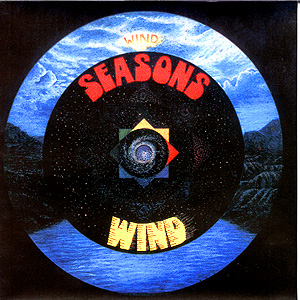|
|
|
01 |
what do we do now |
|
|
|
08:27 |
|
|
02 |
now it's over |
|
|
|
04:25 |
|
|
03 |
romance |
|
|
|
01:34 |
|
|
04 |
springwind |
|
|
|
07:10 |
|
|
05 |
dear little friend |
|
|
|
04:16 |
|
|
06 |
red morningbird |
|
|
|
15:54 |
|
|
|
| Studio |
Tonstudio Dierks |
| Country |
Germany |
| Cat. Number |
SB 016 |
| Spars |
DDD |
| Sound |
Stereo |
|
|
| Producer |
Jochen Petersen |
| Engineer |
Dieter Dierks |
|
SB 016
(c) 1997 Second Battle Germany
Steve Leistner - lead vocals, harmonica, flute, schlotteria, percussion
Thomas Leidenberger - guitars, vocals, lead vocal on "Now It's Over!"
Andreas Bueler - bass, vocals
Lucian Bueler - organ, piano, vocals, percussion
Lucky Schmidt - drums, percussion, vibes, clavinet, piano on "Romance"
Jochen Petersen - flute on "What Do We Do Now"
Recorded at Tonstudio Dierks, Stommeln
WIND
Personnel:
STEVE LEISTNER v
THOMAS LEIDENBERGER g, v
ANDREAS BUELER b
LUCIAN BUELER kb
LUCKY SCHMIDT d, mellotron
ALBUMS:
"Seasons" (Plus 3) 1971
"Morning" (CBS 65007) 1972
NB: 1 Re-issued on CD by Second Battle (SB 016).
These musicians started their recording career with an album of cover versions as Corporal Gander's Fire Dog Brigade: On The Rocks (1970). It was recorded before Leistner joined and they adopted the name Wind. In 1971 they recorded the legendary album Seasons - one of the most sought-after German albums nowadays. This was the second of three releases on the low price Plus label. The varied album captured Wind in different moods: "Dear Little Friend" was a thundering heavy rocker and "What Do We Do Now" a vintage progressive rock anthem with fine use of organ and flute. "Romance" is a charming interlude for prepared piano and "Now It's Over" had melancholic, folky vibes like the 1969 Pink Floyd. "Springwind" had haunting vocal lines and finally came the 15 minute closing track "Red Morningbird" with its floating, moody folk whispering, interrupted by some outrageuosly heavy outbursts. This is one of the classics of German progressive rock that will always be remembered for its powerful hammond organ versus electric guitar sound. It should appeal both to fans of progressive heavy rock and fans of folk-rock as performed by the artists on the Pilz label.
The second album Morning had a different, folky and lyrical fairy-tale atmosphere. The opening track "Morning Song" sounded almost like Procol Harum! "The Princess And The Minstrel" (also released as a 33 rpm single with "Schlittenfart" as the B-side!) was a long, partly spoken tale. "Dragon's Maid", "Carnival" and "Tommy's Song" could be compared to the legendary British group Spring, with their soft mellotron textures. This was another very good album, although I'm not sure it would appeal to the same audience as their first album. After one further 1973-single ("Josephine" coupled with "Puppet Master"), Wind's relationship with CBS ended.
